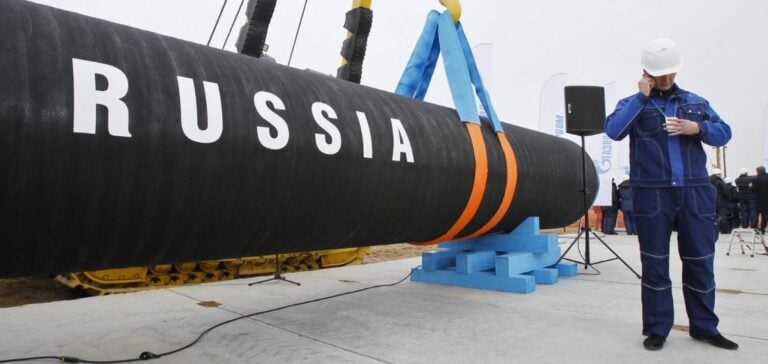The gas transit contract between Russia and Ukraine, signed for five years, expires at the end of 2024. This transit allows Europe to receive Russian gas via Ukraine despite the war, particularly through the Sudzha interconnection point. However, the continuation of these deliveries now depends on an agreement between European buyers and the Ukrainian government.
Alexander Novak, Russia’s Deputy Prime Minister, expressed Russia’s willingness to continue gas deliveries to Europe via Ukraine but clarified that the decisions are no longer solely in Moscow’s hands. “We are ready to supply [the gas], although little depends on us. Agreements should be directly established between European consumers and the transit country,” he said.
Challenges for Europe
A transit halt could impact many European countries still reliant on these deliveries. Among them, Austria and Slovakia are the primary beneficiaries of this transit. Companies like OMV in Austria and SPP in Slovakia anticipate the possibility of compensating for these volumes with other sources in case of an interruption. However, Slovakia is actively advocating for new agreements to ensure the continuation of transit via Ukraine, not only to secure its supply but also due to the substantial revenues generated as a transit country to other nations.
Ukraine’s Opposition
Despite European demand, Ukraine firmly stands on its position of not extending the current agreement with Russia. Ukrainian Prime Minister Denys Shmyhal stated in October 2024 that Kyiv does not consider an extension of this agreement, citing the need to gradually reduce European countries’ dependency on Russian gas. Ukraine aims to diversify its energy supply, despite the impact that a transit halt could have on countries like Slovakia.
Effects on Energy Prices
Uncertainty over Ukrainian transit has influenced gas prices in Europe. Delivery contracts for January and February 2025 show higher rates compared to other periods on the TTF (Title Transfer Facility) trading curve through 2030. The January 2025 TTF contract was assessed at €40.67/MWh in early November, reflecting market concerns over the potential halt of these flows.
Potential Alternatives and Cooperation Prospects
Talks have taken place between Azerbaijan, Russia, and Ukraine to explore the possibility of facilitating the transit of Azerbaijani gas via Ukraine. Azerbaijani President Ilham Aliyev has cautiously expressed optimism about the negotiations, hoping for a breakthrough. Furthermore, Naftogaz, the Ukrainian national company, is considering two scenarios: either a complete cessation of Russian flows or an alternative model where other suppliers could meet the EU’s needs. One condition would be that gas from Socar, an Azerbaijani company, is stored in Ukraine.
The volume of Russian gas transiting through Ukraine has drastically declined in recent years, dropping from 117 billion cubic meters in 2008 to just 14.65 billion in 2023, underscoring the decline of this historical corridor for Russian gas to Europe.






















